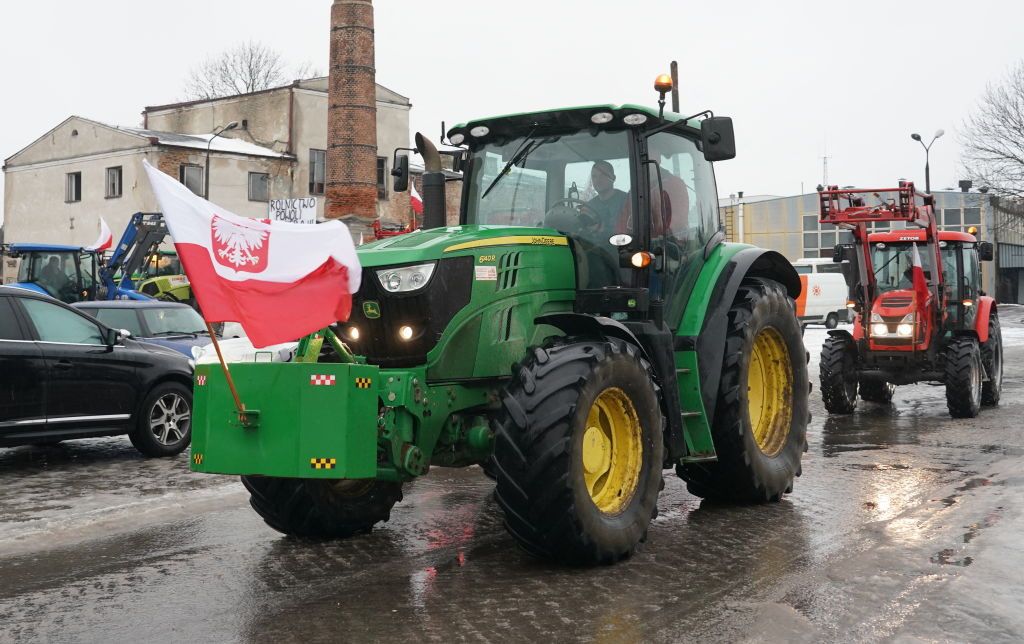Romanian government reaches agreement with farmers, truckers to end protests at Ukrainian border

Romania's coalition government reached an agreement with the country's farmers and truck drivers to end a weeks-long protest against the import of products from Ukraine and other non-EU countries, the Romanian government announced on Feb. 2.
Romanian farmers and haulers joined forces on Jan. 14 and have been at the center of border blockades to protest the export of agricultural products from Ukraine amid concerns over low prices for produce, rising costs, imports of cheap products, and EU climate change-related regulations.
To quell protests, the Romanian government agreed to make concessions, including taking steps to increase subsidies for diesel, address high insurance rates, expedite subsidy payments, and implement measures to alleviate border crossing wait times.
Romanian Prime Minister Marcel Ciolacu signed an agreement with representatives of the protests to set up a committee alongside several ministries to come up with solutions, the government said.
Earlier this month, several Romanian farmers' organizations sent a joint letter to Romanian government officials demanding that the government advocate for import limits at the EU Agriculture and Fisheries Council or risk more blockades.
"All three of you (Romania's president, prime minister, and minister of agriculture) should assume and bear the consequences of the intensification of the protests in Romania and in the other member states, which will grow much faster than anyone expects and that the next step is for the disgruntled farmers from most of the EU member states to move and block the activity in Brussels," the letter read.
Polish farmers and truckers have held similar protests at Ukrainian border crossings for months.
Although Poland's trucker protests appeared to have at least been temporarily halted, Polish farmers have called for nationwide protests to begin in February if the EU does not give into its demands.











